Iran Funded Hamas Missiles With $70 Million, Haniyeh Says
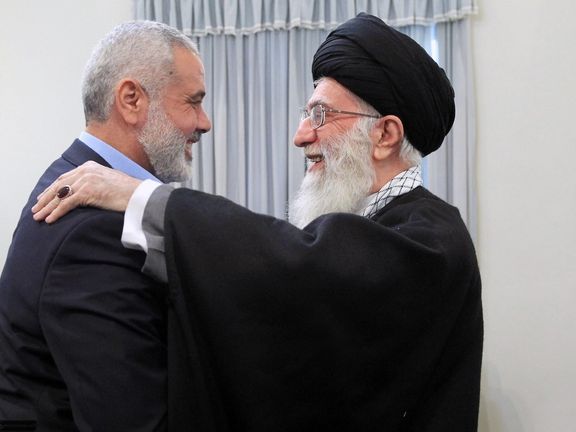
Hamas leader Ismail Haniyeh has revealed that the Iran paid a total of $70 million to the Palestinian group to help it develop missiles and defense systems.

Hamas leader Ismail Haniyeh has revealed that the Iran paid a total of $70 million to the Palestinian group to help it develop missiles and defense systems.
The head of Hamas political bureau added that thanks to the aid from Iran, his group managed to have a comprehensive defense strategy in its confrontation with the Israeli military in the Gaza Strip last year.
He was referring to the two-week outbreak of violence in May 2021 that was called operation “Sword of Jerusalem” by Hamas but dubbed operation “Guardian of the Walls” by Israel.
Haniyeh said that the operation was “a rehearsal for the liberation of the Palestinian territories from the occupation", adding that it "completely paralyzed” Israel as their missiles even reached targets in Tel Aviv, which meant failure of the Iron Dome anti-missile defense system.
Hamas reportedly fired more than 4,000 rockets and missiles at Israel, most of which were intercepted by the Israeli Iron Dome defense system.
He said that Hamas is not fighting a proxy war for Iran, stressing they are in it together against “the common Israeli enemy.”
Haniyeh added that Iran backs the Shiite groups within its framework of support for the “axis of resistance” in the region, noting that Tehran also supports Sunni movements against Israel.
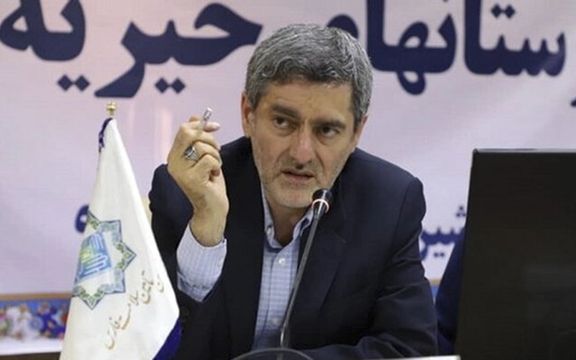
A provincial governor has created an uproar in Iran by telling medical doctors that they are not indispensable, and they can leave the country if they wish.
The highly controversial remark came amid calls by Iran's President and other officials on educated Iranian expats to return to Iran where their services are badly needed.
"Doctors who threaten to leave Iran are free to go and I will see them off," said Mohammad Hadi Imanieh the governor-general of Fars Province and the longest serving dean of the medical school in Shiraz, the capital of Fars Province.
He has also been quoted as having said that he would be willing to pay the travel cost of medical doctors who wish to leave Iran.
Iranian lawmakers and social media users have described Imanieh's comment as "outrageous". Some social media users have also disclosed that Imanieh took advantage of his position and transferred his son, a student of veterinary medicine in Urmia in northwest Iran to Shiraz University and changed his major to Medicine. Other students accused him of forcing medical students to spy on their classmates for him.
Two weeks ago, a conservative lawmaker, Kazem Mousavi, said those who want to listen to music and keep dogs as pet should leave the country. Mousavi was harshly criticized by Iranian musicians and other people including a state television presenter who told him on live TV that he should leave the country rather than trying to impose his ideas on the public.
But these were not the only people who have told other Iranians to leave the country if they do not like what is going on. Earlier, a woman in Islamic outfit who was presented as an expert on family affairs told other Iranians on TV to leave the country if they follow a different lifestyle than what is being mandated by the Islamic Republic’s clerical government.
Like all other Iranian officials who often claim their comments were misreported once they prove to be controversial, both the lawmaker and the governor general claimed their remarks were distorted by the media.
According to Aftab News in Tehran, Imanieh's remarks attracted harsh reactions by the medical community. Former lawmaker Dr. Ali Nobakhtcalled on the Iranian Medical Council to launch an investigation into the matter. He called the remarks by Imanieh "naive and insulting." Several other medical doctors including the chairman of Iranian Consultants' Society Dr. Iraj Khosrownia reminded the governor that "We do not need your permission for leaving the country or remaining where we are." The doctors demanded an apology from the governor-general for his politically incorrect comment.
Other doctors said it was regrettable that the governor, himself a medical doctor, has made such annoying comments instead of trying to encourage doctors not to leave Iran. One doctor, Behrouz Boroumand charged that during the 12 years when Imanieh was the dean of the medical school in Shiraz he hardly had any achievement. He also charged that Imanieh was not qualified enough for the post of governor-general.
Deputy Chief of the Iranian medical council Mohammad Mehdi Qiamat said that Imanieh has hardly ever worked as a medical doctor.
On social media, one Twitter user remindedthat Imanieh has launched his Twitter account only two months ago and has posted 13 tweets, but he has created a lot of controversy with his remarks during this short period.
Another social media user from Shiraz reminded that Imanieh had earlier threatened to expel all private banks from Shiraz. The user jokingly advised the governor to hand over his phone to his wife and stop making remarks for a while after “smoking something”.

The Iran-backed Houthi movement of Yemen hijacked a United Arab Emirates-flagged cargo vessel which it claimed was engaged in "hostile acts".
The ship was heading to the Saudi port of Jizan, just north of Yemen, from the Yemeni Red Sea island of Socotra when it was attacked just before midnight on Sunday, Saudi state news agency SPA reported, quoting coalition spokesman Brigadier General Turki al-Malki.
Saudi Arabia has been battling the Houthis for more than six years. The alliance has accused the Houthis of attacking shipping in the Red Sea, one of the world's busiest maritime lanes leading to the Suez Canal.
The Houthis' military spokesman, Yahya Sarea, confirmed seizure of the vessel which he said was carrying military equipment and engaged in "hostile acts targeting the security and stability of the Yemeni people". He added that the crew, "of different nationalities", were still on board.
In a TV press briefing, Sarea shared photos and videos that he said came from ship showing armored vehicles, weapons and ammunition. He added the vessel had been taken to the Houthi-controlled port of Salif, north of Hodeidah.
SPA said the vessel was carrying equipment from a shuttered field hospital.
The United Kingdom Maritime Trade Operations (UKMTO) said late on Sunday it had received reports of an attack on a vessel in the Red Sea.
Reporting by Reuters
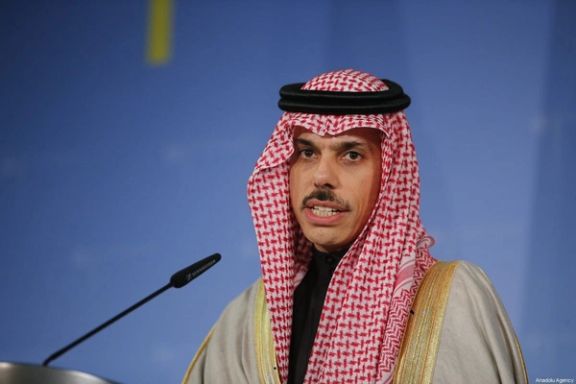
Saudi and Jordanian foreign ministers discussed regional issues Monday, including Iran’s “destabilizing role” and the need to rein in its nuclear program.
Saudi Arabia’s foreign minister Prince Faisal bin Farhan Al Saud said after the meeting in Amman that the two sides “discussed the destabilizing Iranian role in the security and stability of the region and the world, and its support for militias. We also stressed the importance of intensifying efforts to prevent Iran from acquiring nuclear weapons and make the Middle East free of weapons of mass destruction.”
Iran’s arch-rival Sunni Muslim state, however, sounded a reconciliatory note. “However, our hands, as Arabs, are extended to our brothers in Iran if they respond to addressing these Arab concerns regarding the security and stability of the region."
Jordanian foreign minister Ayman al-Safadi condemned “all terrorist attacks against the Kingdom of Saudi Arabia,” and pledged Jordan’s support for Riyadh’s efforts to protect its security.
Iran-backed Houthi forces in Yemen regularly launch drone and missile attacks against Saudi Arabia.
Riyadh and Tehran held talks last year to reduce tensions with the aim of restoring diplomatic ties broken since January 2016. So far, the talks have been exploratory with no tangible results.
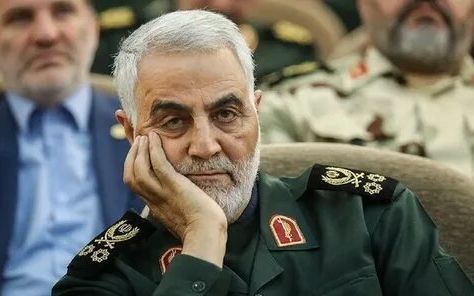
Iran's hardliner President Ebrahim Raisi has vowed revenge for the killing of Qasem Soleimani in 2020 unless former US President Donald Trump is put on trial.
"If Trump and (former Secretary of State Mike) Pompeo are not tried in a fair court for the criminal act of assassinating General Soleimani, Muslims will take our martyr's revenge," Raisi said in a televised speech on Monday.
Iran’s Supreme Leader Ali Khamenei also vowed revenge in a speech on January 1, saying, “Trump and others like him will be forgotten and lost in the dustbin of history, of course after paying for their crimes in the world.”
Soleimani, who was Iran’s top military and intelligence operator outside its borders, was in charge of supporting and organizing militant proxy forces, including the Lebanese Hezbollah and Iraq Shiite militia groups that have repeatedly attacked US forces. He was killed by a US drone strike in Baghdad airport in January 2020.
Iran is engaged in indirect talks with the United States to restore the 2015 nuclear agreement abandoned by Trump in 2018. Critics say that restoring restrictions on Tehran’s nuclear program is not sufficient and sanctions should continue until it is willing to limit its ballistic missile program and alter its regional policies.
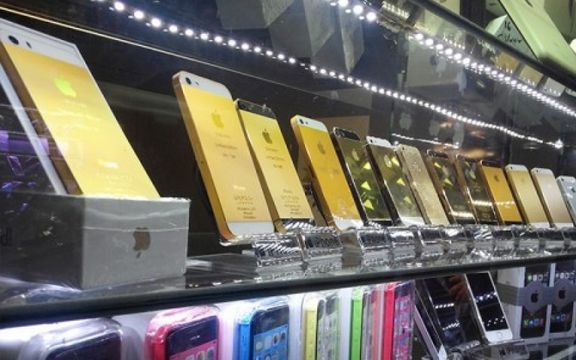
Iran spent $9 billion in foreign currency to import mobile phones in 33 months, with a large portion going for “luxury” devices with a price tag of over $600.
A report by Tasnim news agencypublished on Monday said that over 45 million cellphones have been imported from March 21, 2019, to December 21, 2021.
According to Tasnim’s data, around one quarter of the money, or about $2.3 billion was spent on importing just two million luxury phones – mainly from the American brand Apple. This is less than five percent of the total number of phones bought by the people.
The report added that despite the government raising import duties for these luxury items from five to 12 percent this year, buyers spent more money to grab the expensive models. In the first nine months of the current Iranian calendar year (starting on March 21, 2021), about $940 million was spent on high-priced phones, while the figure was $670 million for the previous year.
Buying such cellphones is too extravagant for most Iranians with ordinary nine-to-five jobs who are paid about $100 to $200 per month. However, there are a lot of Iranian officials and their family members who own the flagship models of Apple and Samsung, whose prices range from at least $1,000 to $2,400 in the Iranian market with the current exchange rate. With official government salaries, no official or Islamic Republic politician would be able to afford an expensive phone.
In comparison to the $9 billion of foreign currency spent on importing cell phones, the Iranian government spent around $15 billion during the same period to give cheap dollars to importers of food and medicines. President Ebrahim Raisi’s administration has decided to stop the indirect subsidy to save precious US dollars, but the rich and government officials keep spending more than $2 billion on expensive phones.
After the killing of Qasem Soleimani by a US drone strike at Baghdad airport in January 2020, many Iranian officials issued statements and messages on social media from their iPhones, demanding the United States leave the region. Soleimani’s daughter Zeinab Hassan also owns an iPhone 13, which costs at least over $2,000 in Iran today.
A selfie she published over the weekend was picked up by Iranian social media users who began reposting it to make the point that the phone the daughter of the former Qods (Quds) force commander uses to demand retribution for the United States, is an iPhone – not a Chinese-made phone.